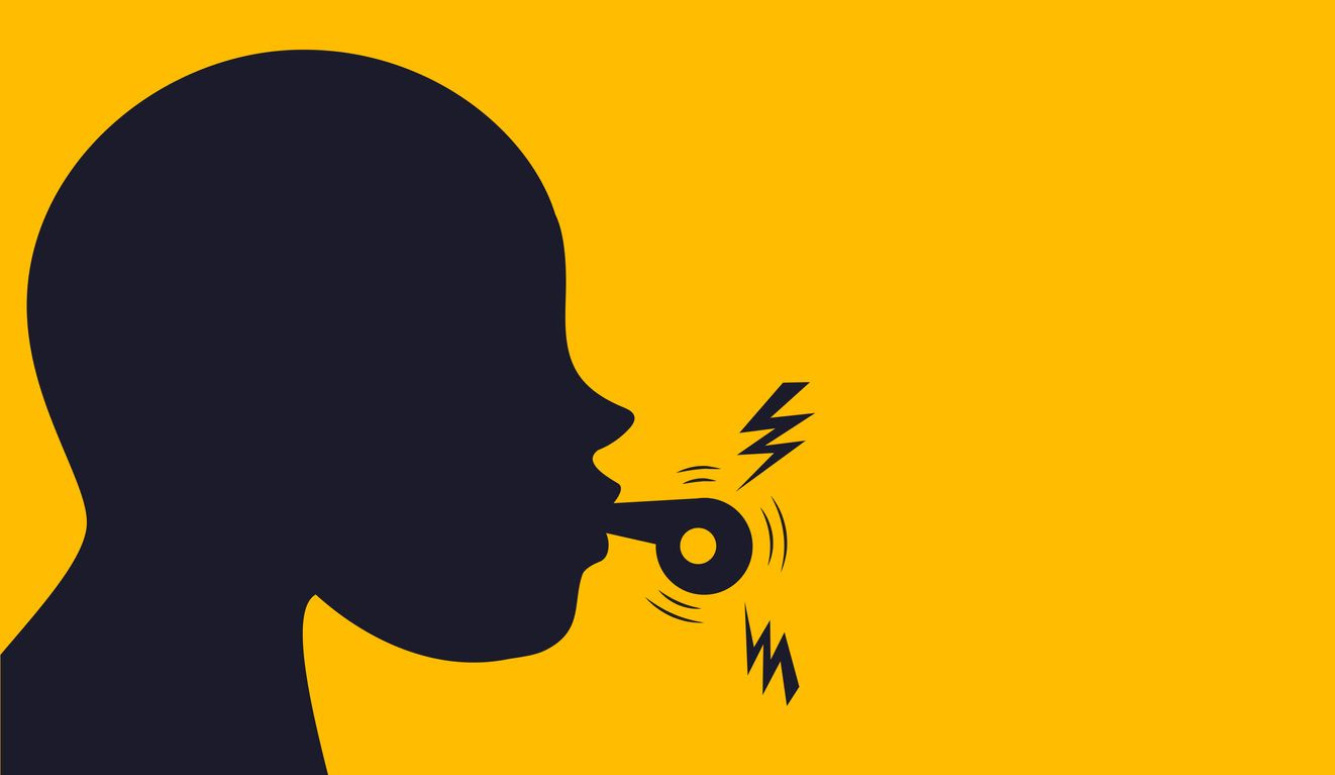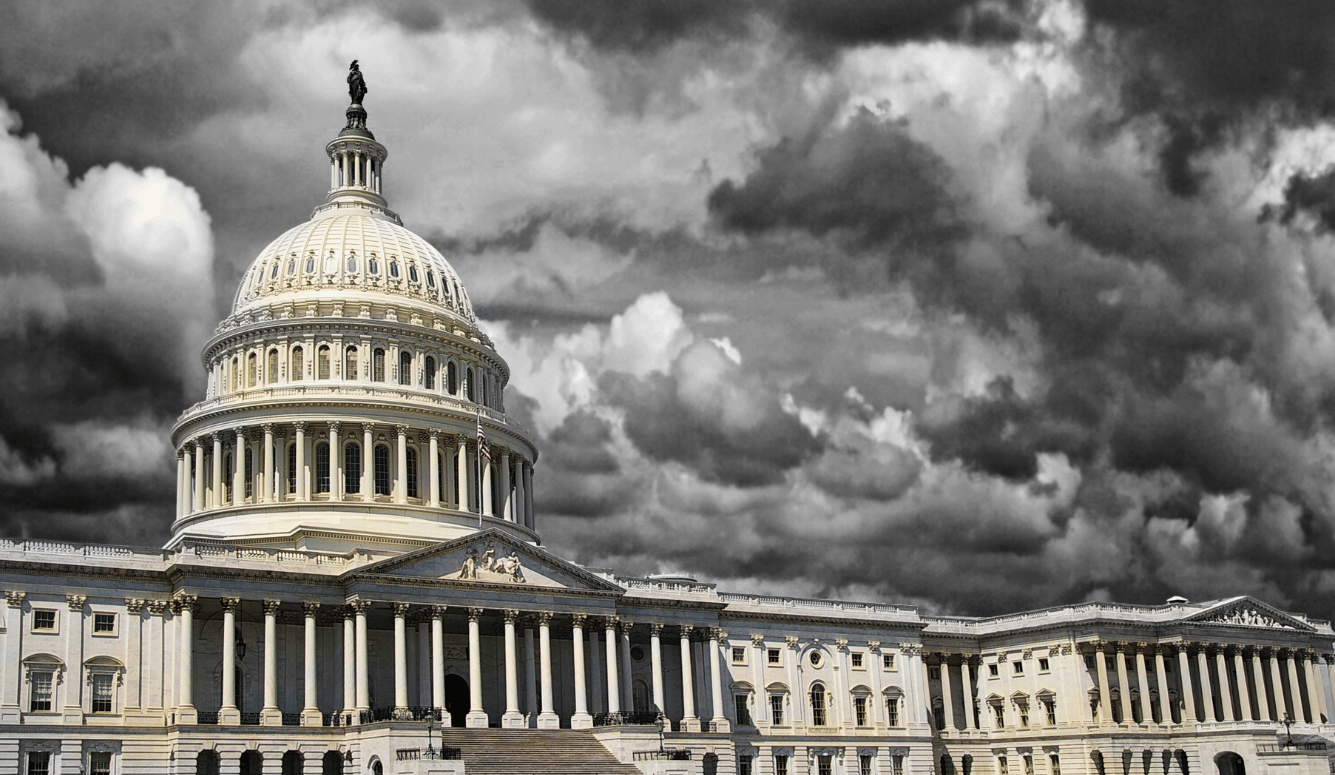Politics
Whistling in the Dark
Apprehensions of dog whistles and code words in political discourse are a desperate rearguard strategy to maintain a moral high ground.

Denunciations of “dog-whistle politics” are now a familiar part of contemporary public discourse. The metaphor refers to the high-pitched sound that calls canines but cannot be heard by humans, and it is used to imply that an apparently neutral policy or argument is actually a subtle or coded appeal to the biases of a select audience. Deploying politically coded messages in this way is a serious accusation, evidenced in a sample of recent headlines: “Politicians Should Stop Using Confusion Over Trans Issues as a Dog Whistle for Intolerance” (from the Globe and Mail), “The QAnon Dog Whistle at the SCOTUS Confirmation Hearings” (from the Atlantic), “Aitchison Condemns Lewis’ Nuremberg Email as ‘Dog Whistle’ to COVID Vaccine Critics” (from CTVNews), “Haley Sounds Her Dog Whistles As She Makes a Play for the MAGA Base” (from the Washington Post), “Backlash Against ‘Dog Whistle’ Labour Tweet About Rishi Sunak” (from the Daily Telegraph), et cetera, et cetera.
The term’s origins are murky, but it made an early appearance in a 1988 remark by Washington Post pollster Richard Morin, who warned that a “dog whistle effect” should be considered in answers to the paper’s surveys when “respondents hear something in the question that researchers do not.” Twelve years later, Australian journalist Tony Wright was among the first to use the term as a reproach, when he wrote about Australian Prime Minister John Howard, whose views on immigration and Aboriginal issues were supposedly playing to white nativism:
He sees his task as harvesting the largest crop of votes he can get by speaking whatever he sees as the language of the mainstream. If that means gathering the votes of those who hold racist views—well, he is a man of the people. It is a particular skill to accomplish this task without identifying directly with racially prejudicial sentiments.
The dog-whistle charge has also been applied retroactively. In his 2014 book Dog Whistle Politics: How Coded Racial Appeals Have Reinvented Racism & Wrecked the Middle Class, Ian Haney López wrote this about the messaging employed by Richard Nixon’s 1968 presidential campaign: “Forced busing, law and order, and security from unrest as the essential right of the majority—all of these were coded phrases that allowed Nixon to appeal to racial fears without overtly mentioning race at all.” Exposing alleged dog whistles and code words is now routinely used to attack politicians, pundits, and performers, and most of these attacks come from their targets’ left.
At a time when an endless stream of printed and electronic speech is available to parse for hidden significance, detection of dog whistles and code words reflects widespread anxiety over mass manipulation in an overwhelmingly mediated age. During the 20th century, labor activism and civil-rights campaigns were believed to be fronts for Red infiltration secretly directed from Moscow, and rock songs were believed to be secretly pushing drug use or Satanism on impressionable young listeners. Things that seemed unremarkable on the surface—popular causes or popular music—were held to be insidious weapons for a much darker power. But the dog-whistle premise is often based on rigged logic: if you say something extreme, you’re in big trouble, but if you say something moderate, you may find yourself in big trouble anyway for disguising your allegedly authentic extremism.
In a 2019 Washington Post essay titled “The ‘Reasonable’ Rebels,” Eve Fairbanks suggested that a number of writers and thinkers (including Sam Harris, Bari Weiss, Jonathan Haidt, and unnamed contributors to Quillette) were discreetly echoing the language of “civility” and “truth” employed by pro-slavery US Southerners before the Civil War:
All of this is there in the reasonable right: The claim that they are the little people struggling against prevailing winds. The argument that they’re the ones championing reason and common sense. ... The depiction of their opponents as an “orthodoxy,” an epithet the antebellum South loved.
[...]
If somebody says liberals have become illiberal, you should consider whether it’s true. But you should also know that this assertion has a long history and that George Wallace and Barry Goldwater used it in their eras to powerful effect.
In other words, if someone holds an unpopular opinion—or if that opinion sways the wrong people—then it doesn’t matter how constructive its expression is. But when people argue a case, they use the most effective vocabulary they can muster, and just because a case is contestable (and every case is) that doesn't invalidate the language placed in its service. Isn’t a point made with sound evidence and considered phrasing thereby valid, whatever the point is?

There is a certain defensiveness in the dog-whistle insinuations of Fairbanks and her ilk, as if the most compelling arguments are also the most dangerous. An outrageously crude proclamation is self-discrediting, whereas a thoughtful but unpopular take on a contentious topic runs the risk of actually changing people's minds, which would be a disaster! From this perspective, apprehensions of dog whistles and code words are a desperate rearguard strategy to maintain a moral high ground. The ignorant white supremacist and the militantly anti-gay fundamentalist pose little threat to proponents of multiculturalism or LGBTQ rights, but the tenured social scientist, the smart editorial writer, or the articulate speaker is more likely to swing the sensibilities of the undecided. Claiming that such figures are no different from abject bigots, despite their learning or their moderation, is a means to forestall their influence.
There’s also a sense that the dog-whistle complaint can mask the complainant’s embarrassment at being faced with a credible criticism. Instead of uttering a demeaning slur against a disadvantaged minority group, someone may marshal statistics confirming their culpability in a social or economic problem; the statistics may be written off as a dog whistle, but they're still objective evidence rather than invective.
In 2022, for example, Jagmeet Singh of Canada's left-leaning New Democratic Party told an interviewer: “It is easy to find a scapegoat and to say that the reason why you can’t find a good enough job to buy your groceries, or the reason why the cost of living is going up, is because of all these new immigrants, as a dog-whistle type of argument that would incite division.” Does immigration exacerbate inflation or unemployment? Perhaps—that is the contended point. But in Singh’s view, blaming immigration is simply a ploy to incite division and attract racist support, so any strengths of the argument do not even need to be considered. In 2023, political strategist Nina Smith protested that Republican skepticism about US Vice President Kamala Harris’s fitness as a replacement for Joe Biden was “part of the dog whistle, fear-mongering we've seen them do. It’s them playing to the worst part of America in order to win an election.” In Smith’s view, legitimate doubts about Harris’s ability to assume the weight of presidential responsibility on the world stage are simply reflections of and appeals to misogyny and racism and cannot possibly be a fair assessment of her experience.
In a notorious 1988 episode, Lee Atwater, adviser to presidential candidate George H.W. Bush, sanctioned television clips about Willie Horton, a black rapist and murderer furloughed from prison on the authority of Bush's rival, Massachusetts governor Michael Dukakis. “In true dog whistle style,” Ian Haney López wrote in Dog Whistle Politics, “the most effective Willie Horton ad never mentioned race at all. Instead, it showed a grainy mug shot of Horton, clearly black, staring blankly into the camera. ... As each horrendous element of the crime was narrated, one by one the indictments flashed under Horton's photo: ‘Kidnapping.’ ‘Stabbing.’ ‘Raping.’ Finally the voice intoned: ‘Weekend prison passes: Dukakis on crime.’” Was Dukakis ultimately to blame for Horton’s actions? Maybe, maybe not. But to López, illustrating that claim with a “clearly black” criminal was simply a cynical invocation of racist stereotypes (even though the illustration “never mentioned race at all’), and couldn't possibly have been a relevant weakness to highlight. Heads I win, tails you lose.
Each of these instances implies that the act of persuasion is itself a dirty trick, irrespective of the method. Under this standard, political disputes only ever pit enlightened progressives against dumb rednecks, and if the rednecks score a win it must be because they’ve somehow broken the rules (my favorite variation on this theme is the alarm raised over “reasonable-sounding” dissent around climate change or COVID policy, as though sounding reasonable is itself an underhanded move). Rather than refuting arguments on their merits, stigmatizing them as mere smokescreens for racism, sexism, or other forms of bigotry allows partisans to avoid engaging with them altogether. “Dog whistles” and “code words” rely upon the revulsion most of us feel towards any kind of prejudice by deflecting unwelcome ideas or facts as veiled hatred. In doing so, they violate the discipline of debate, and they degrade the value of rhetoric itself.






